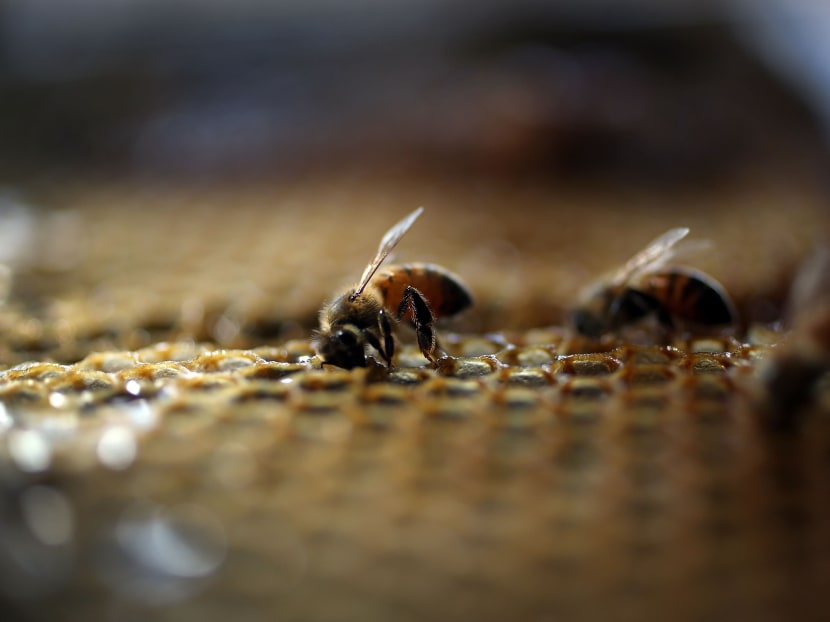Hong Kong man suffers from rare ‘mad honey’ poisoning
HONG KONG — Hong Kong’s health authorities are investigating a rare case of “mad honey” poisoning involving a 61-year-old Hongkonger who had eaten honey from Nepal.

Photo: AFP
HONG KONG — Hong Kong’s health authorities are investigating a rare case of “mad honey” poisoning involving a 61-year-old Hongkonger who had eaten honey from Nepal.
The victim was hit by weakness, numbness, chills and shortness of breath about 45 minutes after eating just a spoonful of the honey in question at home on Jan 18, the Centre for Health Protection said.
He sought treatment at the emergency unit of the Prince of Wales Hospital in Sha Tin and was admitted early on Jan 19. The man was discharged on the same day in a stable condition.
Grayanotoxins, a group of closely related toxins found in rhododendrons and other plants from the same family, were later detected in his urine sample and the uneaten honey.
The honey produced from the pollen of such plants can sometimes contain the neurotoxins, and is then known as “mad honey”.
Ingestion can quickly lead to symptoms including nausea, vomiting, diarrhoea, dizziness, weakness, excessive perspiration, hypersalivation and paraesthesia (pins and needles).
In severe cases, hypotension, bradycardia (slow heart rate) or shock may occur.
An investigation by the centre found that the honey involved was brought from Nepal by the victim’s friend. The authorities reminded members of the public to buy honey from a reliable source or apiary, and to discard it if it had a bitter or astringent taste as honey containing grayanotoxin could cause a burning sensation in the throat.
Travellers to areas such as the Black Sea region of Turkey, North America, Korea, Japan, Nepal and New Zealand should pay special attention as there have been reported cases of grayanotoxin poisoning that were attributed to honey from these areas.
The centre’s investigation is ongoing.
In September last year and May in 2014, the centre confirmed two cases of mad honey poisoning in the city, affecting a 50-year-old man and a 49-year-old woman. They were briefly hospitalised. The woman required intensive medical care before she was stabilised.
In August 2013, three related people suffered from mad honey poisoning.
All these cases involved honey from Nepal. SOUTH CHINA MORNING POST





